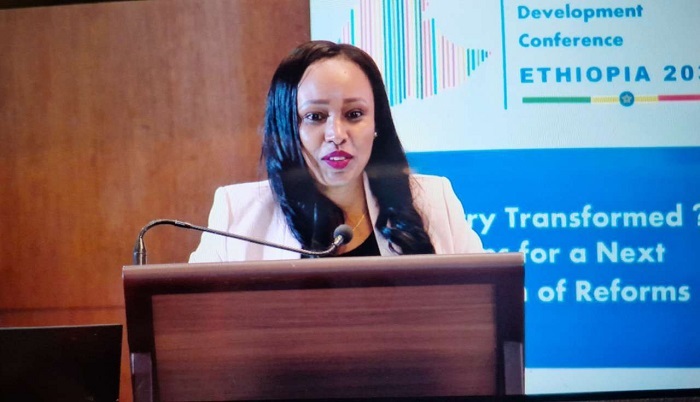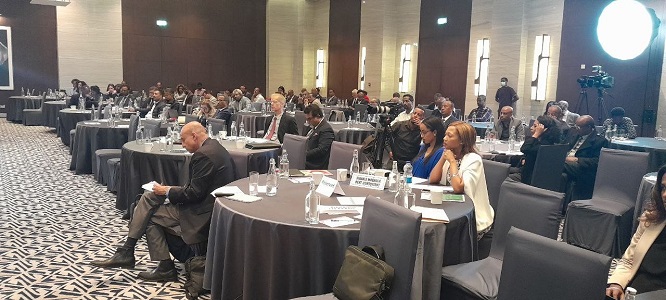Conflict, Climate Impact Interventions Equally Important to Address Structural Challenges Causing them: Minister - ENA English
Conflict, Climate Impact Interventions Equally Important to Address Structural Challenges Causing them: Minister

Addis Ababa (ENA) December 17/2022 As it is really important to respond to Ethiopia's conflict and climate-induced impacts, it is also equally important to address structural challenges that caused them, Minister of Planning and Development, Fisum Asefa said.
The minister made the remarks during the United Nations Development Program (UNDP) annual Development conference held in Addis Ababa yesterday under the theme: “Ethiopia 2030: A Country Transformed? Options for a Next Generation of Reforms.”

Ethiopia has faced multiple challenges since it started wide-ranging political, justice, security, and economic reforms with the aim to transform the country into growing democracy, and the state-led economy into private-led growth and development, the minister recalled.
"But equally important was addressing the structural challenges that caused be it conflict or drought but that did not happen and most of the reform milestones that we hoped to achieve really did not happen. So you know finance was one of the shocks that could be mentioned among the others. These shocks have led to slowing growth as you know in development."
The Minister noted that Ethiopia faced conflict a year into implementing the Home Grown Economic reform launched in 2019 and the external development support decreased, shifting the focus on conflict-affected and climate-induced impacts.
"After a year into the implementation of the Home Grown Economic reform, Ethiopia has faced serious, multiple internal and external shocks," she noted, pointing out the pandemic, conflict, and climate-induced drought, flood, and locust.
The Home Grown Economic reform was launched with three broad areas of reform, namely restoring macroeconomic and financial stability, addressing structural bottlenecks and sectoral challenges, and identifying five great potential sectors agriculture, manufacturing, mining, ICT, and tourism to achieve economic transformation and growth.
UNDP Resident Representative, Turhan Saleh on the occasion said the partnership with Ethiopia during the challenges has focused on responding to crucial events related to survival that are different from the development of the country.
“Development is not the same thing as survival, if left unchecked,” the United Nations Development Program representative stressed.
“We want to go beyond the focus on survival. We are here to forge a community that believes the best of Ethiopia still lies ahead of us and we cannot wait collectively to come together to deliberate on, debate, and discuss how we could help Ethiopia get there,” he added.
UN Resident and Humanitarian Coordinator, Catherine Sozi said the country has been facing multiple challenges, including conflict, COVID-19, and climate change consequences and the humanitarian caseloads have been growing from year to year for many years.
The UN family is here in Ethiopia to support the UN agenda 2030 and the SDGs, she noted, stating that achieving this agenda has been facing challenges in every country in the world.
“It is especially urgent here because we are at a critical juncture as Ethiopia seeks to look ahead to peace, recovery, and reducing the people’s humanitarian needs and vulnerabilities,” the UN humanitarian coordinator stressed.
Therefore, it is crucial to reflect on the challenges and support Ethiopia accelerate the government’s 10-year development plan which is clearly aligned with the UN 2030 and AU 2063 agendas, she added.